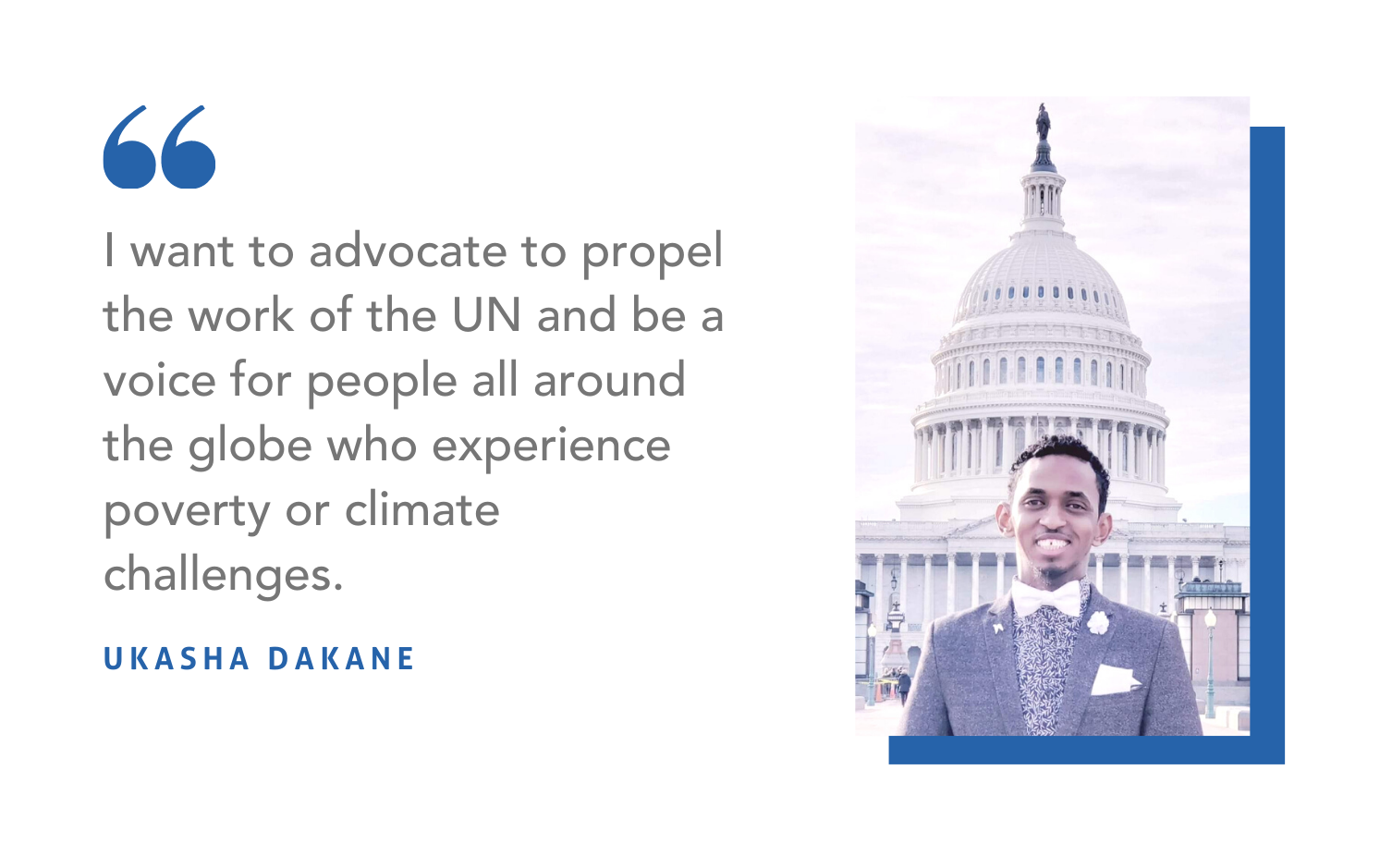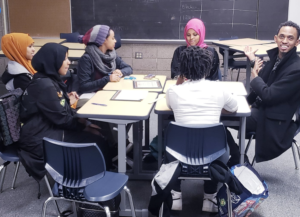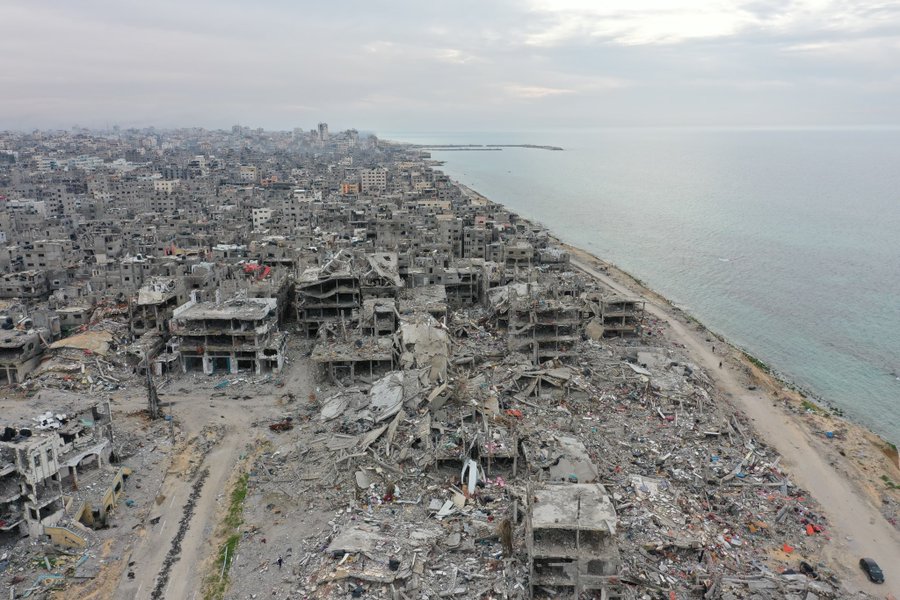Champion Spotlight: Ukasha Dakane
Ukasha Dakane is a UNA-USA Champion who advocates for the United Nations in his Minnesota community. Despite having no chapter nearby, Ukasha continues to be a strong and passionate global citizen who aims to help more people understand the Sustainable Development Goals and the work of the UN. Outside of being a Champion, Ukasha is the executive director of the Fortune Relief and Youth Empowerment Organization (FRAYEO), where he equips immigrant and refugee youth with the tools they need to succeed and become voices of change.

Why do you feel called to work with youth through FRAYEO?
There’s a need right now. I feel like it’s the best time to equip the young generation. My work in FRAYEO is helping youth [refugees] navigate through resources in Minnesota as they come to the US Workforce. We help youth find sustainable employment that can uplift them, and we help them navigate resources [like] housing or health insurance.
My role is to help these young children and youth [learn about] the SDGs, and try to connect young people and the UN, so they can understand the role of the UN early [on]. In the future they can advocate in the way I’m doing right now.
When it comes to climate action, it’s this generation that can do something. If this generation isn’t involved in conversations around climate, then there will be a future full of [hopelessness].
Many of the young people I’m working with right now have experienced life in refugee camps and how unfortunate it was to be a war refugee, and they don’t want to be a climate refugee anytime soon. It’s better to have them engaged right now.

How does FRAEYO work with the community to support refugees in Minnesota?
I’ve worked with local leaders and community members [to help them] understand the main things refugees go through. Last year, I [organized] “Shax Iyo Sheko” (in Somali), or “Tea and Talk,” where myself and the youth in the community invited our neighbors to a conversation to talk about the [lives] of refugees. I was really surprised by how many people think refugees come to this country overnight. As we were explaining to them about the screening process, the medical examination, the criminal records, it was eye opening for people.
People who are [not near] organizations that are working with refugees can still engage themselves in grassroots organizing events. They can invite friends and neighbors to talk about how they can support refugees and how they can promote their wellbeing.
You’ve lived in a couple different countries, and your education and work have always been globally focused. Why do you feel it’s important to have this globalized mindset?
This idea of having global initiatives and mindsets – it’s like we’re living in a global village where people are a little far apart, but in the same situations.
Poverty in South Asia [is similar] to poverty in East Africa. The struggles of homelessness and refugees in East Africa [are similar in] Syria or the Middle East. If we have that mindset where we work on these problems collaboratively, then we can reach that goal of sustainable development and make the world a better place.
What advice would you give to someone who is trying to be an individual changemaker like you?
The road to change-making is never easy. There are times when you feel alone, and there’s times when you feel like you need support, but you don’t get it. But the path of change will never come until one person [gets] out of their comfort zone to do better [as a global citizen].
In the process of impacting other lives, touching lives, and changing systems and policy, you will need an ally. Integrate with [your] community and try to find people who you resonate with. This road is never easy, but take it easy.
To learn more about the Champions program, visit https://unausa.org/una-usa-champions/.
Images sourced via frayeo.org and facebook.com/frayeo.org/.




